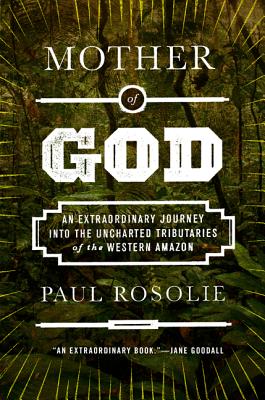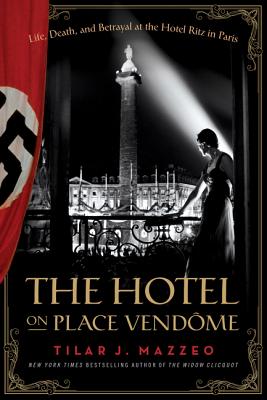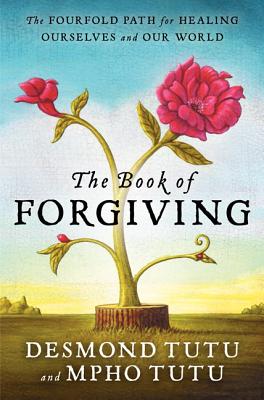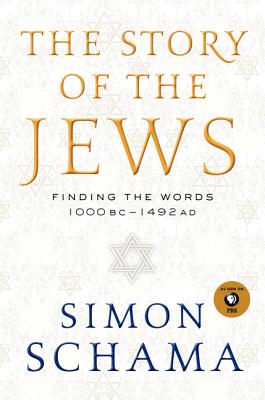For fans of The Lost City of Z, Walking the Amazon, and Turn Right at Machu Picchu comes naturalist and explorer Paul Rosolie’s extraordinary adventure in the uncharted tributaries of the Western Amazon—a tale of discovery that vividly captures the awe, beauty, and isolation of this endangered land and presents an impassioned call to save it.
In the Madre de Dios—Mother of God—region of Peru, where the Amazon River begins its massive flow, the Andean Mountain cloud forests fall into lowland Amazon Rainforest, creating the most biodiversity-rich place on the planet. In January 2006, when he was just a restless eighteen-year-old hungry for adventure, Paul Rosolie embarked on a journey to the west Amazon that would transform his life.
Venturing alone into some of the most inaccessible reaches of the jungle, he encountered giant snakes, floating forests, isolated tribes untouched by outsiders, prowling jaguars, orphaned baby anteaters, poachers in the black market trade in endangered species, and much more. Yet today, the primordial forests of the Madre de Dios are in danger from developers, oil giants, and gold miners eager to exploit its natural resources.
In Mother of God, this explorer and conservationist relives his amazing odyssey exploring the heart of this wildest place on earth. When he began delving deeper in his search for the secret Eden, spending extended periods in isolated solitude, he found things he never imagined could exist. “Alone and miniscule against a titanic landscape I have seen the depths of the Amazon, the guts of the jungle where no men go, Rosolie writes. “But as the legendary explorer Percy Fawcett warned, ‘the few remaining unknown places of the world exact a price for their secrets.’”
Established in 1898 in the heart of Paris on the Place Vendome, the Hotel Ritz instantly became an icon of the city frequented by film stars and celebrity writers, American heiresses and risque flappers, politicians, playboys, and princes. By the 1920s the bar became a favorite watering hole for F. Scott Fitzgerald and other writers of the Lost Generation, including Ernest Hemingway. In June 1940, when France fell to the Germans, Joseph Goebbels, the propaganda minister of the Third Reich, famously declared that the nation's capital would remain a high-spirited place--or else. Orders from Berlin specified that the Hotel Ritz would be the only luxury hotel of its kind in occupied Paris.
Tilar J. Mazzeo traces the history of this cultural landmark from its opening in fin de siecle Paris to the modern era. At its center, The Hotel on Place Vendome chronicles life at the Ritz during wartime, when the hotel simultaneously served as headquarters to the highest-ranking German officers, such as Reichsmarschall Hermann Goring, and home to wealthy patrons (and to the spies among them) who stayed on in Paris. At Coco Chanel's table in the dining room on any given evening, one might find the playwright and screenwriter Sacha Guitry, the lithe Russian ballet star Serge Lifar, or Jean Cocteau and his handsome boyfriend.
Mazzeo takes us into the grand palace's suites, bars, dining rooms, and wine cellars, revealing a hotbed of illicit affairs and deadly intrigue, as well as stunning acts of defiance and treachery, in which refugees were hidden in secret rooms, a Jewish bartender passed coded messages for the German resistance, and Wehrmacht officers plotted to assassinate the Fuhrer. By the spring of 1944, as the tides of the war shifted, these stories were all coming to their dramatic and sometimes heartbreaking conclusions. There were celebrations as well: when Ernest Hemingway returned in the last hours of the occupation with his rogue band of "irregular" troops to liberate the Hotel Ritz, they also liberated many bottles of vintage wine from its cellars.
The result is the story of The Hotel on Place Vendome--a singular season at the world-class hotel, an intimate and riveting portrait of the last days of the Second World War.
How do I forgive?
Nobel laureate Archbishop Desmond Tutu has witnessed some of the worst crimes people can inflict on others. So wherever he goes, he inevitably gets asked this question. This book is his answer. Writing with his daughter, Mpho, an Anglican priest, they lay out the simple but profound truths about the significance of forgiveness, how it works, why everyone needs to know how to grant it and receive it, and why granting forgiveness is the greatest gift we can give to ourselves when we have been wronged.
They explain the four-step process of forgiveness—Telling the Story, Naming the Hurt, Granting Forgiveness, and Renewing or Releasing the Relationship—as well as offer meditations, exercises, and prayers to guide the reader along the way.
"With each act of forgiveness, whether small or great, we move toward wholeness," they write. "Forgiveness is how we bring peace to ourselves and our world."
In this magnificently illustrated cultural history--the tie-in to the PBS and BBC series The Story of the Jews--Simon Schama details the story of the Jewish experience, tracing it across three millennia, from their beginnings as an ancient tribal people to the opening of the New World in 1492 to the modern day.
It is a story like no other: an epic of endurance against destruction, of creativity in oppression, joy amidst grief, the affirmation of life against the steepest of odds.
It spans the millennia and the continents--from India to Andalusia and from the bazaars of Cairo to the streets of Oxford. It takes you to unimagined places: to a Jewish kingdom in the mountains of southern Arabia; a Syrian synagogue glowing with radiant wall paintings; the palm groves of the Jewish dead in the Roman catacombs. And its voices ring loud and clear, from the severities and ecstasies of the Bible writers to the love poems of wine bibbers in a garden in Muslim Spain.
In The Story of the Jews, the Talmud burns in the streets of Paris, massed gibbets hang over the streets of medieval London, a Majorcan illuminator redraws the world; candles are lit, chants are sung, mules are packed, ships loaded with spice and gems founder at sea.
And a great story unfolds. Not--as often imagined--of a culture apart, but of a Jewish world immersed in and imprinted by the peoples among whom they have dwelled, from the Egyptians to the Greeks, from the Arabs to the Christians.
Which makes the story of the Jews everyone's story, too.
In the Madre de Dios—Mother of God—region of Peru, where the Amazon River begins its massive flow, the Andean Mountain cloud forests fall into lowland Amazon Rainforest, creating the most biodiversity-rich place on the planet. In January 2006, when he was just a restless eighteen-year-old hungry for adventure, Paul Rosolie embarked on a journey to the west Amazon that would transform his life.
Venturing alone into some of the most inaccessible reaches of the jungle, he encountered giant snakes, floating forests, isolated tribes untouched by outsiders, prowling jaguars, orphaned baby anteaters, poachers in the black market trade in endangered species, and much more. Yet today, the primordial forests of the Madre de Dios are in danger from developers, oil giants, and gold miners eager to exploit its natural resources.
In Mother of God, this explorer and conservationist relives his amazing odyssey exploring the heart of this wildest place on earth. When he began delving deeper in his search for the secret Eden, spending extended periods in isolated solitude, he found things he never imagined could exist. “Alone and miniscule against a titanic landscape I have seen the depths of the Amazon, the guts of the jungle where no men go, Rosolie writes. “But as the legendary explorer Percy Fawcett warned, ‘the few remaining unknown places of the world exact a price for their secrets.’”
Established in 1898 in the heart of Paris on the Place Vendome, the Hotel Ritz instantly became an icon of the city frequented by film stars and celebrity writers, American heiresses and risque flappers, politicians, playboys, and princes. By the 1920s the bar became a favorite watering hole for F. Scott Fitzgerald and other writers of the Lost Generation, including Ernest Hemingway. In June 1940, when France fell to the Germans, Joseph Goebbels, the propaganda minister of the Third Reich, famously declared that the nation's capital would remain a high-spirited place--or else. Orders from Berlin specified that the Hotel Ritz would be the only luxury hotel of its kind in occupied Paris.
Tilar J. Mazzeo traces the history of this cultural landmark from its opening in fin de siecle Paris to the modern era. At its center, The Hotel on Place Vendome chronicles life at the Ritz during wartime, when the hotel simultaneously served as headquarters to the highest-ranking German officers, such as Reichsmarschall Hermann Goring, and home to wealthy patrons (and to the spies among them) who stayed on in Paris. At Coco Chanel's table in the dining room on any given evening, one might find the playwright and screenwriter Sacha Guitry, the lithe Russian ballet star Serge Lifar, or Jean Cocteau and his handsome boyfriend.
Mazzeo takes us into the grand palace's suites, bars, dining rooms, and wine cellars, revealing a hotbed of illicit affairs and deadly intrigue, as well as stunning acts of defiance and treachery, in which refugees were hidden in secret rooms, a Jewish bartender passed coded messages for the German resistance, and Wehrmacht officers plotted to assassinate the Fuhrer. By the spring of 1944, as the tides of the war shifted, these stories were all coming to their dramatic and sometimes heartbreaking conclusions. There were celebrations as well: when Ernest Hemingway returned in the last hours of the occupation with his rogue band of "irregular" troops to liberate the Hotel Ritz, they also liberated many bottles of vintage wine from its cellars.
The result is the story of The Hotel on Place Vendome--a singular season at the world-class hotel, an intimate and riveting portrait of the last days of the Second World War.
How do I forgive?
Nobel laureate Archbishop Desmond Tutu has witnessed some of the worst crimes people can inflict on others. So wherever he goes, he inevitably gets asked this question. This book is his answer. Writing with his daughter, Mpho, an Anglican priest, they lay out the simple but profound truths about the significance of forgiveness, how it works, why everyone needs to know how to grant it and receive it, and why granting forgiveness is the greatest gift we can give to ourselves when we have been wronged.
They explain the four-step process of forgiveness—Telling the Story, Naming the Hurt, Granting Forgiveness, and Renewing or Releasing the Relationship—as well as offer meditations, exercises, and prayers to guide the reader along the way.
"With each act of forgiveness, whether small or great, we move toward wholeness," they write. "Forgiveness is how we bring peace to ourselves and our world."
In this magnificently illustrated cultural history--the tie-in to the PBS and BBC series The Story of the Jews--Simon Schama details the story of the Jewish experience, tracing it across three millennia, from their beginnings as an ancient tribal people to the opening of the New World in 1492 to the modern day.
It is a story like no other: an epic of endurance against destruction, of creativity in oppression, joy amidst grief, the affirmation of life against the steepest of odds.
It spans the millennia and the continents--from India to Andalusia and from the bazaars of Cairo to the streets of Oxford. It takes you to unimagined places: to a Jewish kingdom in the mountains of southern Arabia; a Syrian synagogue glowing with radiant wall paintings; the palm groves of the Jewish dead in the Roman catacombs. And its voices ring loud and clear, from the severities and ecstasies of the Bible writers to the love poems of wine bibbers in a garden in Muslim Spain.
In The Story of the Jews, the Talmud burns in the streets of Paris, massed gibbets hang over the streets of medieval London, a Majorcan illuminator redraws the world; candles are lit, chants are sung, mules are packed, ships loaded with spice and gems founder at sea.
And a great story unfolds. Not--as often imagined--of a culture apart, but of a Jewish world immersed in and imprinted by the peoples among whom they have dwelled, from the Egyptians to the Greeks, from the Arabs to the Christians.
Which makes the story of the Jews everyone's story, too.




No comments:
Post a Comment